Replacing a lead singer is hard. They are usually the spokespeople for your band, doing the most interviews, standing front and center in band photos, and bantering with the audience between songs during concerts. If the fans form a parasocial relationship with any of your band’s members, it’s usually going to be the lead singer.
But with that responsibility can also come big egos, drug problems, and drama. Although it’s sometimes necessary to let your diva lead singer go (if he didn’t already quit on you), it can be a challenge to maintain your fans’ attention with a whole new face of the band.
Even if you successfully pull off a lead singer swap, the best you can hope for is for your fanbase to be divided on which singer was better and debate it on internet forums for years to come. And since I’m getting tired of seeing these debates any time these bands get mentioned, I have decided to take it on myself, as the only true metalhead, to settle them once and for all so you nerds can shut up about it and go outside. You’re welcome.
Exodus: Steve “Zetro” Souza vs. Rob Dukes


The inspiration for this post given Exodus’s recent switch from Zetro to Dukes (again).
Neither was the original lead singer for the band, but these two are the longest-tenured. The former’s first stint in Exodus began in 1986, releasing four studio albums before being fired in 1993, temporarily breaking up the band. He rejoined in 2002, releasing another album before quitting (or being fired again, depending on whom you ask) in 2004. He rejoined a third time in 2014 and made two more albums, but was fired earlier this year.
The latter was in the band from 2005 to 2014, releasing four studio albums before he was dismissed. He has recently returned to the role to replace the former.
Points for Zetro
I would argue that Souza has the more unique voice of the two, able to demonstrate relatively “clean” vocals, screams, and shouts. Combine with the fact that he was on more of the band’s “classic” records in the 80’s, he just seems more like the voice of Exodus to me.
Points against Zetro
Having a unique voice is not always a positive, as many Zetro haters like to point out that he sounds like a cartoon character. Although his vocals on the cleaner end of the spectrum might be an acquired taste, I find them entirely appropriate for their classic releases. Have Zetro’s detractors even listened to those albums’ lyrics or looked at their covers? This was not an era of Exodus that took itself particularly seriously.

Flailing round and round and you’re injury bound, waltz it up, the pit is it
You can take your chance on this rough new dance if you dare to dive in
There are some that try but they won’t survive, they don’t hit ’cause they’re wimps
And this exercise helps you brutalize with us, Exodus
That said, I won’t try to defend his vocal performance on their latest release, Persona Non Grata.
Points for Dukes
His screams are more cutting and aggressive than anything I’ve heard Zetro do.
Points against Dukes
That’s practically all he does. He’ll occasionally venture into clean singing, but for the most part all you get with him is a non-stop barrage of mid to high-range screaming.
The Winner: Steve “Zetro” Souza
Zetro is a jack of all trades, while Dukes is a master of one. But the original expression goes “A jack of all trades is a master of none, but often times better than a master of one.” In the case of Exodus, I prefer the variety that Zetro provides.
Candlemass: Johan Längquist vs. Messiah Marcolin


Johan Längquist performed lead vocals as a session musician on Candlemass’s first full-length album, Epicus Doomicus Metallicus, leaving the band after the album’s release in 1986. Candlemass replaced Längquist with Messiah Marcolin that same year, releasing three more full-length albums before Marcolin left in 1991.
Candlemass would have several other lead singer changes over the years. Not only did this result in the recruitment of Robert Lowe from Solitude Aeternus at one point…
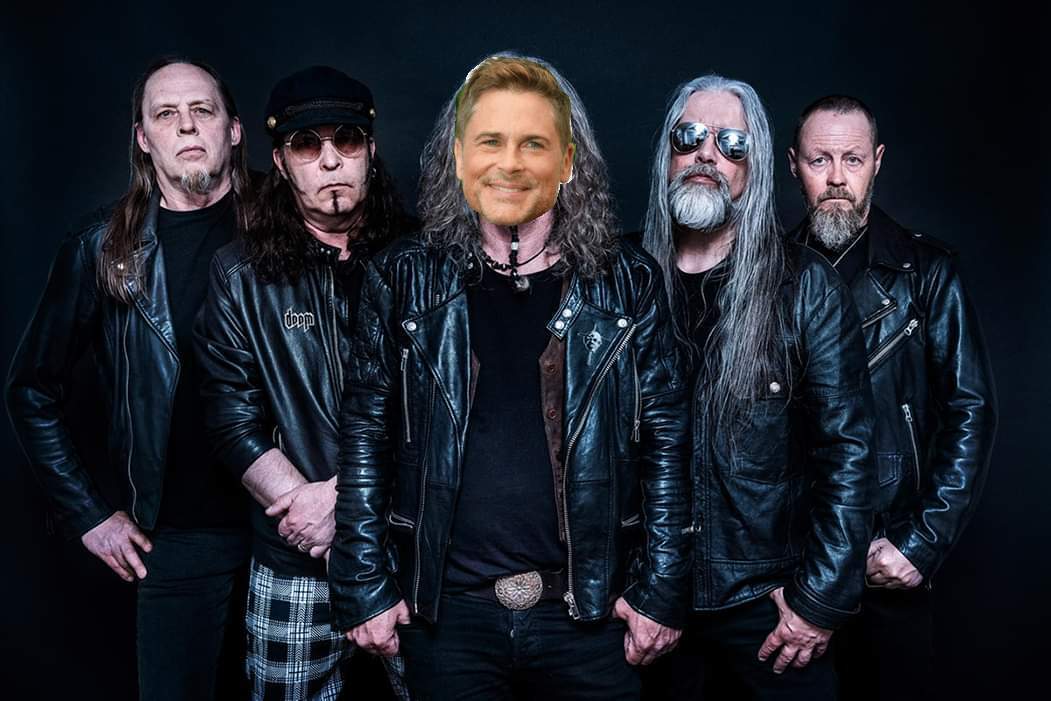
…they also resulted in both Längquist and Marcolin rejoining the band on separate occasions.
Marcolin rejoined Candlemass during the aughts (Wikipedia and Encyclopaedia Metallum differ on the exact dates), and released another full-length album in 2005 before leaving the band again. He will also be reuniting with the band again later this year to perform a one-off live set at Rock Hard Festival Greece.
Längquist would audition for the role of full-time Candlemass lead singer after Marcolin left the role in 1991, although Thomas Vikström ultimately got the job. Längquist would also temporarily rejoin Candlemass a few times himself in 2007 and 2011 to perform Epicus Doomicus Metallicus live before finally becoming the band’s full-time lead singer in 2018. He has since released two full-length albums with the band.
Points for Längquist
Despite having no intention of joining Candlemass full-time when he recorded Epicus Doomicus Metallicus, he still helped secure their legacy as the founders of epic doom metal with his haunting and powerful voice. He also hits a few higher notes on that album that I don’t believe Marcolin attempts on any of his Candlemass recordings.
Points for Marcolin
His voice is just as powerful and haunting as Längquist, but as the band’s first official lead singer he was able to secure a much more prominent legacy in the band’s history, appearing with the band for photoshoots, interviews, and tours.
I also find his later material when he rejoined the band for 2005’s self-titled album to be more memorable than Längquist’s two new full-length records.
The Winner: Messiah Marcolin
Both are amazing vocalists and frontmen (there wasn’t much point in including “points against” either singer), but Messiah’s timing swung the matchup in his favor.
Cannibal Corpse: Chris Barnes vs. George “Corpsegrinder” Fisher

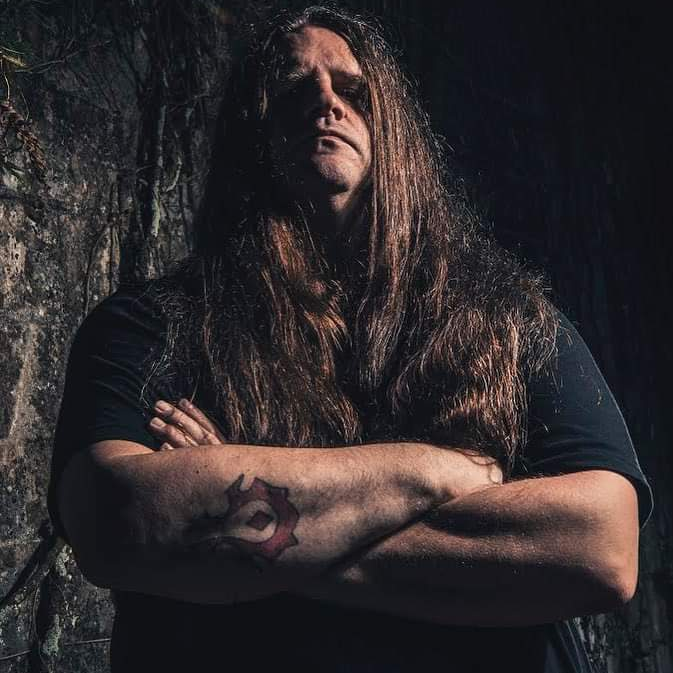
Chris Barnes was Cannibal Corpse’s original lead vocalist and lyricist from 1988 to 1995, appearing on the band’s first four albums before they let him go. They replaced him with George Fisher, who has been their lead vocalist since, appearing on twelve albums to date.
Points for Barnes
Barnes was undoubtedly a major reason Cannibal Corpse got off to the successful start it did as one of the key creative figures behind the band.
He is also rightly credited as one of the pioneers of low guttural vocals; when death metal was getting its start as a subgenre, its vocalists employed a more mid-range rasp not unlike some thrash vocalists, who were largely their inspiration. However, Barnes took his vocals to a new, well, low on Cannibal Corpse’s sophomore album, Butchered at Birth, stating he wanted his vocals to blend into the music and become “another instrument.” This style is now known as the “death growl” as it has become one of the defining features of death metal.
Points against Barnes
For the sake of fairness, I’m only going to take his tenure in Cannibal Corpse into account since this article is about who was the better lead singer of said band (and if I wrote about everything he said or did after leaving Cannibal Corpse we’d be here all day).
However, he was fired from Cannibal Corpse due to his lack of willingness to compromise on creative differences and poor vocal performance. So it’s probably safe to say the antagonistic tool we all know today who can’t growl to save his life was already in the making back in 1995.
Points for Corpsegrinder
Corpsegrinder is one the main reasons Cannibal Corpse stayed successful after firing Barnes. He was the only replacement the band considered. Drummer Paul Mazurkiewicz even admitted that “If [Corpsegrinder] had declined, or hadn’t have worked out, I’m not sure what would have happened. It may have been the end of Cannibal Corpse. It was as serious as that.”
Three decades and twelve records later, it’s clear that Cannibal Corpse is here to stay.
Points against Corpsegrinder
No.
The Winner: Corpsegrinder
This had to be the most asymmetric matchup on this list by far. Yes, Barnes wrote and recorded some good records that are still beloved by many to this day. But if your bandmates in Cannibal Corpse of all bands think you can’t evolve with the times, you’re just asking to be…
Killswitch Engage: Jesse Leach vs. Howard Jones

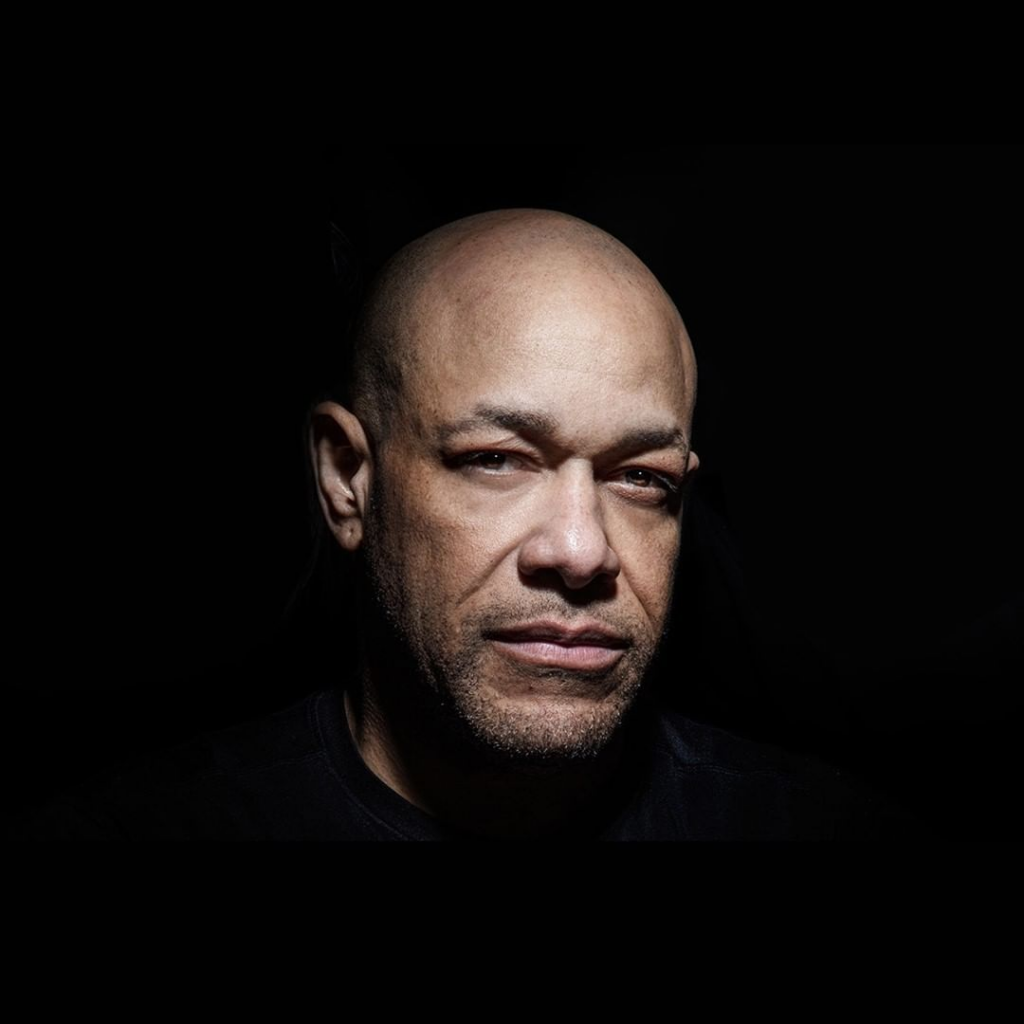
Jesse Leach was the original lead singer of Killswitch Engage, fronting the band from 1999 to 2002 and appearing on their first two full-length albums, quitting shortly before the release of their sophomore record. Howard Jones replaced Leach, singing for Killswitch from 2002 to 2012 and appearing on three full-length records before himself quitting the band. Leach then returned to the role in 2012, which he still occupies, and has released four more records with the band since.
Points for Leach
Leach fans can confidently say that he not only put Killswitch Engage on the map in the early aughts, he has now fronted the band for far longer and appeared on twice as many albums as Jones. Although Killswitch’s debut flew a little under the radar commercially, all of Leach’s albums were generally well-received critically.
Points against Leach
I know he was going through some personal issues at the time, but breaking up with your band via email just before a tour is kind of a dick move.
Points for Jones
Like I’ve said before, I find Jones’ voice to be more distinct as a metalcore singer. Leach, on the other hand, seems to be the victim of his own success. As the singer who put Killswitch Engage, and by extension metalcore, on the map, he may have produced countless metalcore vocalists trying to emulate his clean singing.
But that’s not to say Jones had no mainstream success of his own. His era saw Killswitch Engage’s first certified gold album, first certified platinum album, and songs featured on the soundtracks for blockbuster action movies and video games.
Points against Jones
Commercial accessibility is not always a good thing, as some criticize Jones’ era of Killswitch Engage for being too soft and radio-friendly.
Although he released three albums with the band, it’s also worth noting that his third one, 2009’s self-titled record, didn’t age as well as the other ones. It’s not a bad album, and Jones himself still sounds great on it, but the common sentiment among Killswitch fans (myself included) is it’s their “least best.”


The Winner: Howard Jones
I enjoy all of Killswitch Engage’s material, but as someone who has also been told he has a unique singing voice (and not always as a compliment), I appreciate the inimitable flair Jones’ voice brings to his era of the band.
While I understand the criticisms that his material was too radio-friendly, I’d argue that he still nailed Leach’s material live just as well as his own (well, at least on the live recordings I heard. I sadly never got to see Killswitch play with Jones for myself).
Morbid Angel: David Vincent vs. Steve Tucker


Neither were the original lead singer for the seminal death metal band, but these were the only two to do lead vocals on any of their full-length albums.
David Vincent joined in 1986, appearing on their first four full-length albums before quitting the band in 1996. Steve Tucker replaced him in 1997, recording two full-length albums before leaving in 2001. He then returned to the role in 2003 and recorded another full-length record with Morbid Angel before departing again in 2004 to be replaced by Vincent. Vincent released another full-length album with the band before leaving again in 2015 to be replaced by Tucker (again), who has been with the band since.
Points for Vincent
Although Morbid Angel has always been lead guitarist Trey Azagthoth’s band, Vincent’s influence on not only the band’s legacy, but death metal as a whole cannot be overlooked. Morbid Angel’s first three albums are now considered pioneering works in death metal, influencing countless bands. Although Vincent employed a more mid-range rasp throughout the first two (which was still mind-bendingly heavy for the time, don’t get me wrong), he started to demonstrate his insane range on 1993’s Covenant. Just listen to “God of Emptiness” for examples of his mid-range growl, low gutturals, clean bass voice, and some kind of vocal fry/death growl/gurgle combination that somehow manages to be completely intelligible.
Their fourth record, Domination received mixed reactions from the fanbase on account of their change to a slower style. Everyone’s entitled to their opinion, except if that opinion is “Vincent’s vocals on this record are bad,” because that is objectively false. He continues to demonstrate his range, bringing that entirely intelligible vocal fry/growl/gurgle thing to mid range as well.
Points against Vincent
I won’t hold 2011’s Illud Divinum Insanus against him because:
a) I’ve never listened to it in its entirety. Most good industrial music isn’t even my thing so I know I won’t like a death metal band’s attempt at it.
b) I’m rating vocalists here, and from what I remember his vocal performance on the record was still fine (no, I will not be listening to it again to double-check).
But based on the vibe I get from watching Vincent’s interviews as well as what fans and other musicians who have met him say, he seems to be kind of a douche.
Points for Tucker
Tucker’s vocal performance on every one of his Morbid Angel records is a relentless barrage of punishment. He has Vincent topped when it comes to low gutturals, while still being perfectly intelligible for the most part. My favorite Morbid Angel album hands-down is 2000’s Gateways to Annihilation, and I tend to prefer Tucker’s material overall.
He’s also not afraid to rock the bald look, whereas Vincent must be dying his roots black every other week.
Points against Tucker
His low gutturals may be better, but that seems to be all he can do. He only death growls on the Morbid Angel records he recorded, and apparently that’s all he does live as well.
I’ve seen him with Morbid Angel live twice myself; the first time I don’t think they even played any Vincent-era material, and the second time he low-growled through “Chapel of Ghouls,” unlike how Vincent performed it on the album.
This seems to be consistent with what I can find of his live recordings online, since on two clips I watched of him playing “God of Emptiness” he can’t do the enunciated vocal fry/growl/gurgle combo Vincent does (to be fair, I’ve yet to hear any other metal singer able do that), and transitions directly into another song when it gets to the part where Vincent sings on the recording.
The Winner: David Vincent
I didn’t think I’d reach this conclusion when I added Morbid Angel to the list, since like I said I prefer Tucker’s material. But when comparing their contributions as vocalists, Vincent’s range makes Tucker seem like a one-trick pony.
Black Sabbath: Ozzy Osbourne vs. Ronnie James Dio
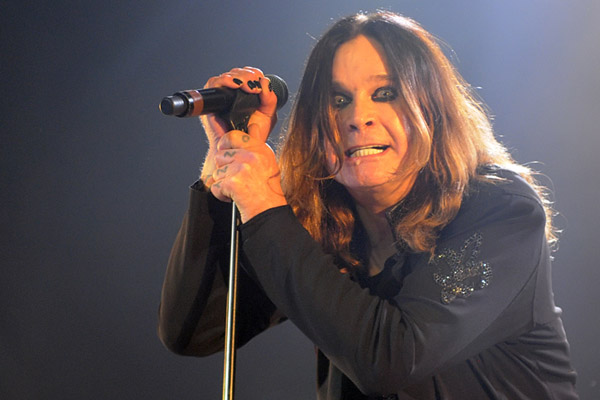
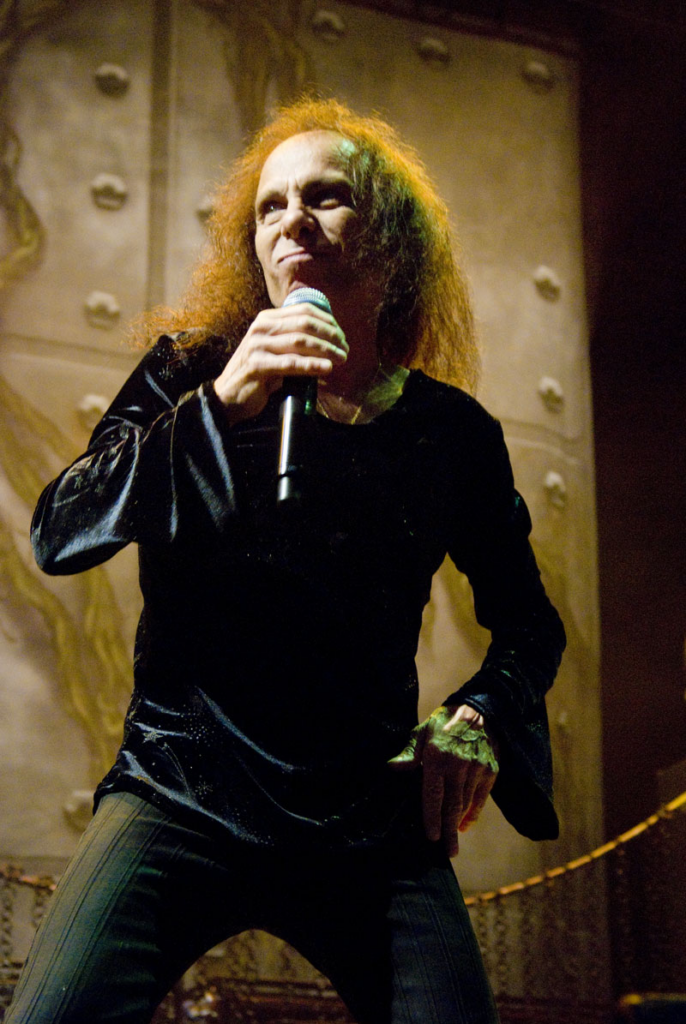
You knew this had to be the last debate on this list. This is the original “who was the best lead singer” debate in the metal world. Although Black Sabbath had several other lead singers besides these two (not to mention countless lineup changes overall), Ozzy and Dio are easily their best-known.
And in the time my slow ass took to write this article, they have announced another final reunion show (but this time I believe them), so this couldn’t be any more fitting.
Ozzy Osbourne was the original lead singer of Earth, and later Black Sabbath when they changed their name in 1969. He released seven albums with the band until he left in 1977 to pursue his solo career, although he rejoined Black Sabbath again in 1978 to release another album before being fired in 1979.
Black Sabbath replaced Ozzy with Ronnie James Dio, formerly of the band Rainbow, in 1979. Dio released two albums with the band before leaving in 1982 to pursue his solo project. He rejoined Sabbath in 1991, briefly leaving again after a disagreement with lead guitarist Tony Iommi, before returning that same year and releasing another album in 1992.
However, he left again that same year after butting heads with Iommi again. Ozzy’s solo band had invited Sabbath to open for them on two concerts celebrating what Ozzy believed would be his retirement at the time. Iommi was down, but Dio refused and quit. With Sabbath accepting the invitation, Ozzy took the opportunity to briefly rejoin his old band (reuniting the entire original lineup) for four songs on the second concert.
Ozzy rejoined Sabbath in 1997 until 2004 when the band went on hiatus (I am not including Heaven and Hell as part of this summary because they took a different band name and this summary is way too long already). He rejoined again when the band returned from hiatus in 2011, releasing another album before playing their “final” concert in 2017.
Now he just rejoined them again for their actual final concert this summer. Well, kinda.
Points for Ozzy
Ozzy was an indispensable part of Black Sabbath’s rise to success with his unique, haunting wail. Although his writing contributions are the subject of much debate, his bandmates credited him with making the vocal melodies, usually singing random words which helped bassist Geezer Butler write the lyrics.
As Black Sabbath was the first metal band, it’s not unfair to say Ozzy was partly responsible for creating the greatest music in existence.
Points against Ozzy
Not all of his records with Sabbath were the strongest.
I also haven’t been too keen to separate the art from the artist elsewhere on this list, but there have already been entire books and documentaries made about Ozzy’s shortcomings. I don’t have the patience to rehash all that crap here.
Points for Dio
Dio was also one of the best metal singers, gifted with an amazing vocal range. All three albums he produced with Sabbath are straight bangers, and he actually wrote his own lyrics.
Firing Ozzy was a controversial choice. Had they chosen another replacement, it could have sunk them (which kind of happened with every other lead singer they had).
He also seemed to be a pretty down to earth guy as well.
Points against Dio
He did get into a name-calling contest with Ozzy in the tabloids during his first stint with Sabbath. It’s not that his criticisms were unfounded (and both parties probably benefitted from the attention), but he could have been the bigger man.
…er, figuratively speaking.
The Winner: Ozzy Osbourne
In what should be the least surprising verdict on this list, Ozzy takes the crown.
Dio’s tenure with Sabbath was legendary in its own right, and his legacy as a whole is nothing short of incredible, but when debating who was the better lead singer of Black Sabbath, it’s no contest.
Ozzy was instrumental (no pun intended) in the creation of Sabbath, was in the band for much longer, and sang far more of the band’s biggest hits. These are the songs and albums that have been making Sabbath fans for decades, and they will probably continue to do so.